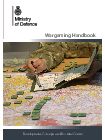It seems to be more powerful and transformative than if the role was choosen (it can be possible if the game master decides to do so). In ludic RPG, most of the time the character are build by the player, or choosen by the player among a set of pre-generated characters.
If the character is assigned [no evidence or sources to these claims]:
- The player can endorse the role with less judgement from outside;
- There is less responsability because no choice was made, so it's less stressful;
- The distanciation is greater;
- The effort of play is more challenging, it is less automatic or easy;
- The player needs to ask more questions and to endorse the answers;
- The player can experience cogitive dissonance with the character but, because its not him and he didn't choose it, its more easy to accept the dissonance than his own ;
- The player experiments a new role he maybe never [dare to] think about;
- Its more easy for the gamemaster to design and assign roles that are competing or conflicting because it is a source of meaningful game.
*
Janis, I. L., & King, B. T. (1954). The Influence of Role Playing on Opinion Change. Journal of Abnormal Psychology, 49(2), 211–218.

